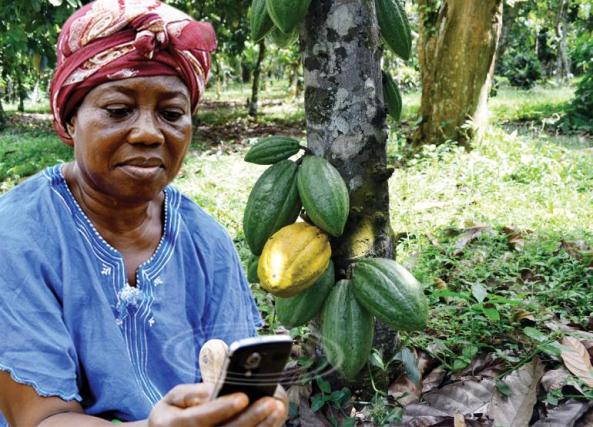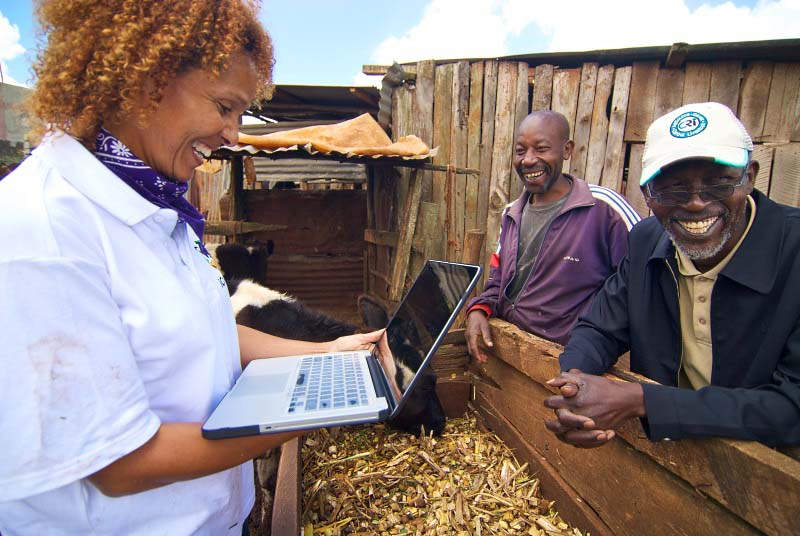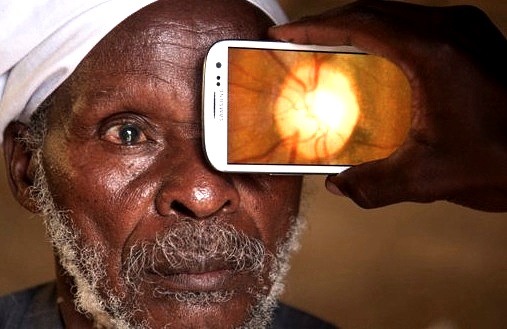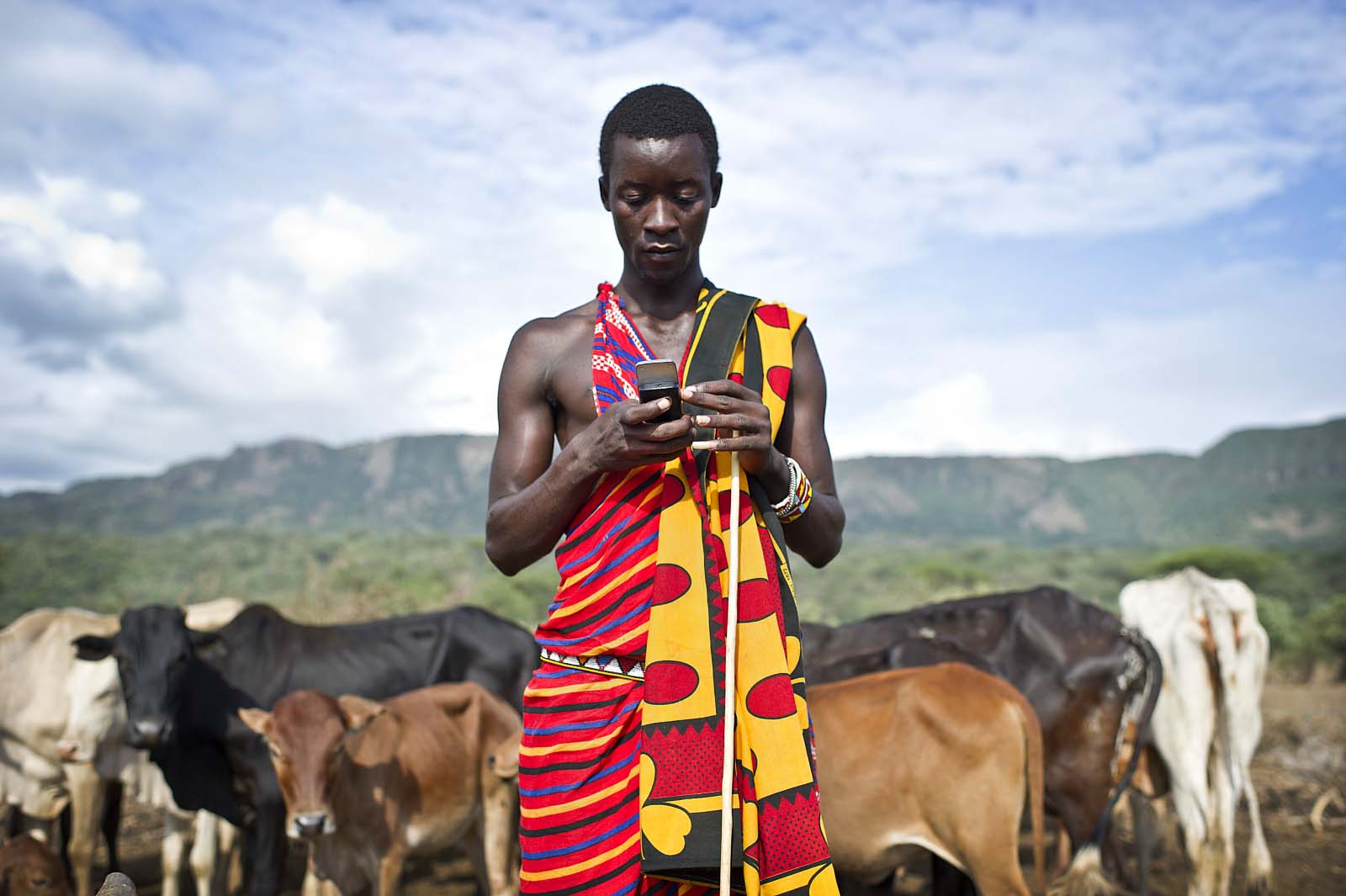Mobile technology is the fastest growing market in Africa. The mobile penetration rate at the end of 2014 was an estimated 51% of the entire population. This advancement cuts across a wide range of income groups and is expanding rapidly as some researchers estimate spread could soon reach 80%.
This industry is now being used to provide information and create social change for low income groups. With an internet penetration of only 26.5% in Africa, most non-profit mobile technology offerings, range from sending out bulk SMSs to USSD since these can be accessed by simple phones. Two areas seeing dramatic applications of mobile technology are; Agriculture and Healthcare.
The farmers Contrivance
Mobile technology has boosted agricultural productivity in Africa in recent years. Cocoa production in Ghana has been helped in no small way by a mobile app called CocoaLink. It provides a platform for cocoa farmers in Western Ghana to receive and share practical information with industry experts and other farmers via SMS and voice messages. This program which started in 2011 has over 45,000 users with over a million SMS messages exchanged between them. The results? In three years, farmers in CocoaLink communities had increased their yield by an estimated 45.6%. It has also provided an avenue for over 65% of cocoa farmers to receive appropriate training. Given that Ghana stands as the second largest producer of cocoa in the world, this could serve as a major transformative instrument if this trend is maintained.

Cocoalink mobile app giving cocoa farmers more opportunities
The penetration of mobile technology in agriculture is not only limited to crop production. In Kenya, a mobile app called iCow is also taking farming to a new level. The app is not just restricted to cow farmers as the name might imply; it also provides services to chicken farmers. Among many benefits, iCow helps farmers to be aware and better manage the estrus cycle of their cow. It also has an impact on animal health by providing up to date information and access to vets and artificial insemination agents. Such correspondence is maintained via SMS or the internet. Out of the many iCow users’ testimonies the fascinating tale of Thuo, a farmer from Nairobi stands out. With the help of iCow he has seen a hundred percent increase in milk production.
According to Thuo, not only has this given him a better financial standing it has also boosted his confidence. Gicharu, a chicken farmer from Lamu sees the amount of knowledge he has gained through the use of iCow as being priceless. Su Kahumbu, the founder of iCow says constant engagement with customers to keep up to date with what they want and what they think has been vital to the success of iCow. It has also been a testament to how far mobile technology has helped improve the lives of farmers in Africa.

Su Kahumbu founder of iCow with local farmers
Progress in healthcare
From surveys and medical data gathering to pill reminders and drug authentication, mobile technology is fast becoming an indispensable tool for healthcare in Africa. It has minimized the negative impact, inaccessible roads and pricey equipment have on patients in rural areas. Presently Initiatives and companies like Vodafone-mhealth, GeoMed and HealthSMS use mobile technology to provide groups with health information.
A unique case that comes to mind is PEEK, a mobile app that works with a lens adapter for eye tests in a clinic or in the comfort of a patient’s home. Speaking at a TED talk in 2014, Andrew Bastawarous a Kenya-based ophthalmologist and co-founder of PEEK told how this low cost equipment has brought succor to many blind people in the remotest parts of Africa. They harnessed the power of mobile technology to deliver eye care in a novel way. The first step is for the patient to have their vision accurately tested using the app and an eye tracker. This data is then interpreted in non-medical jargon to show carers and teachers what the visual world of the patient is like, for the sake of empathy and sustained help. But it does not stop there, with the help of additional low cost hardware, high quality views of the back of the eye can be obtained and according to Andrew; “the beauty is, anybody can do it.”

Eye examination with the PEEK vision mobile App
The issue of power supply is also surmounted by harnessing the power of solar. The technology also permits that they reach out to the patient in their homes rather than the other way round. They are also able to track and schedule treatments for these patients. They work with the local leaders and community elders to ensure that their patients can be easily located and arranged for treatment.
According to Misha Kay, manager of the Global Observatory for eHealth, 40 African countries use mobile health services. This is crucial given that in Africa, mobile penetration outstrips infrastructure development in the continent. Currently mobile penetration stands at an estimated 52% compared to internet penetration (26.5%), road access (34%), and electricity (20%). Also as there is just a doctor for every 2,000 people in Africa, using mobile technology to augment health care in rural Africa has become imperative.

The spread and influence of mobile technology in Africa is proving to be an anchor for disruptive inventions. Most innovations gaining traction across Africa involve mobile devices and wireless technology in some way or another. Considering Africa’s current infrastructural challenges, the influence of mobile technology in healthcare and agriculture (a major source of employment) is key to the continent’s development. Mobile phone penetration is projected to increase to 80% by 2020 in sub-Saharan Africa according to a new study by Frost and Sullivan.
For Africa, it seems, necessity may be the mother of invention, but technology is its father.
– Matthew Wall (BBC)

